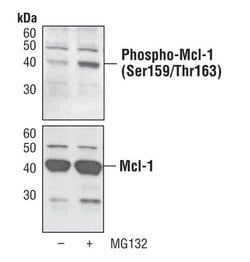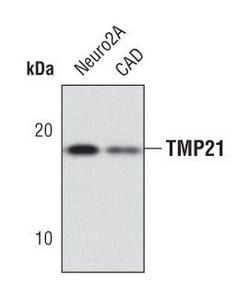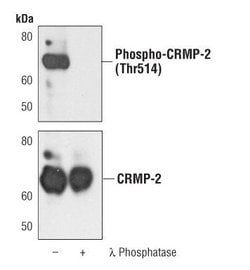Phospho-MCL1 (Ser159, Thr163) Polyclonal Antibody, Invitrogen™
Manufacturer: Thermo Scientific
Select a Size
| Pack Size | SKU | Availability | Price |
|---|---|---|---|
| Each of 1 | PIPA517125-Each-of-1 | In Stock | ₹ 51,976.00 |
PIPA517125 - Each of 1
In Stock
Quantity
1
Base Price: ₹ 51,976.00
GST (18%): ₹ 9,355.68
Total Price: ₹ 61,331.68
Antigen
Phospho-MCL1 (Ser159, Thr163)
Classification
Polyclonal
Formulation
0.01M HEPES with 0.15M NaCl, 100μg/mL BSA, 50% glycerol and no preservative; pH 7.5
Gene Accession No.
Q07820
Gene Symbols
MCL1
Immunogen
Synthetic phosphopeptide corresponding to residues surrounding human pSer159/Thr163
Quantity
100 μL
Primary or Secondary
Primary
Target Species
Human
Product Type
Antibody
Isotype
IgG
Applications
Western Blot
Conjugate
Unconjugated
Gene
MCL1
Gene Alias
AW556805; BCL2 family apoptosis regulator; BCL2L3; bcl2-L-3; Bcl-2-like protein 3; bcl-2-related protein EAT/mcl1; EAT; Induced myeloid leukemia cell differentiation protein Mcl-1; induced myeloid leukemia cell differentiation protein Mcl-1 homolog; Mcl1; Mcl-1; mcl1/EAT; MCL1-ES; MCL1L; MCL1S; MCL-1S; MGC104264; MGC1839; myeloid cell leukemia 1; myeloid cell leukemia ES; myeloid cell leukemia sequence 1; myeloid cell leukemia sequence 1 (BCL2-related); TM
Host Species
Rabbit
Purification Method
Antigen affinity chromatography
Regulatory Status
RUO
Gene ID (Entrez)
4170
Content And Storage
-20°C
Form
Liquid
Description
- It is not recommended to aliquot this antibody
- MCL1 (Myeloid cell leukemia-1) belongs to the Bcl-2 family and is involved in programing, differentiation and concomitant maintenance of cell viability, but not of proliferation
- Isoform 1 of MCL1 inhibits apoptosis while isoform 2 promotes it
- The carboxy terminal of MCL1 and bcl-2 share significant sequence homology
- Expression of MCL1 is increased upon exposure of ML-1 cells to various types of DNA damaging agents (e.g
- ionizing radiation, μgtraviolet radiation, and alkylating drugs) along with increases in GADD45 and Bax and a decrease in bcl-2
- Enhanced expression of MCL1, prominently associated with mitochondria, complements the continued expression of bcl-2 in ML-1 cells undergoing differentiation
- Like bcl-2, MCL1 has the capacity to promote cell viability under conditions that otherwise cause apoptosis
- While the mechanism by which MCL1 inhibits apoptosis is not known, it is thought that it may heterodimerize and neutralize pro-apoptotic members of the Bcl-2 family such as Bim or Bak
- MCL1 was originally identified in differentiating myeloid cells, but has since been shown to be expressed in multiple cell types
- MCL1 is essential for embryogenesis and for the development and maintenance of B and T lymphocytes in animals
- MCL1 exists as at least two distinct isoforms designated MCL1L and MCL1S
- In marked contrast to the larger isoform of MCL1, overexpression of MCL1S promotes cell death.



